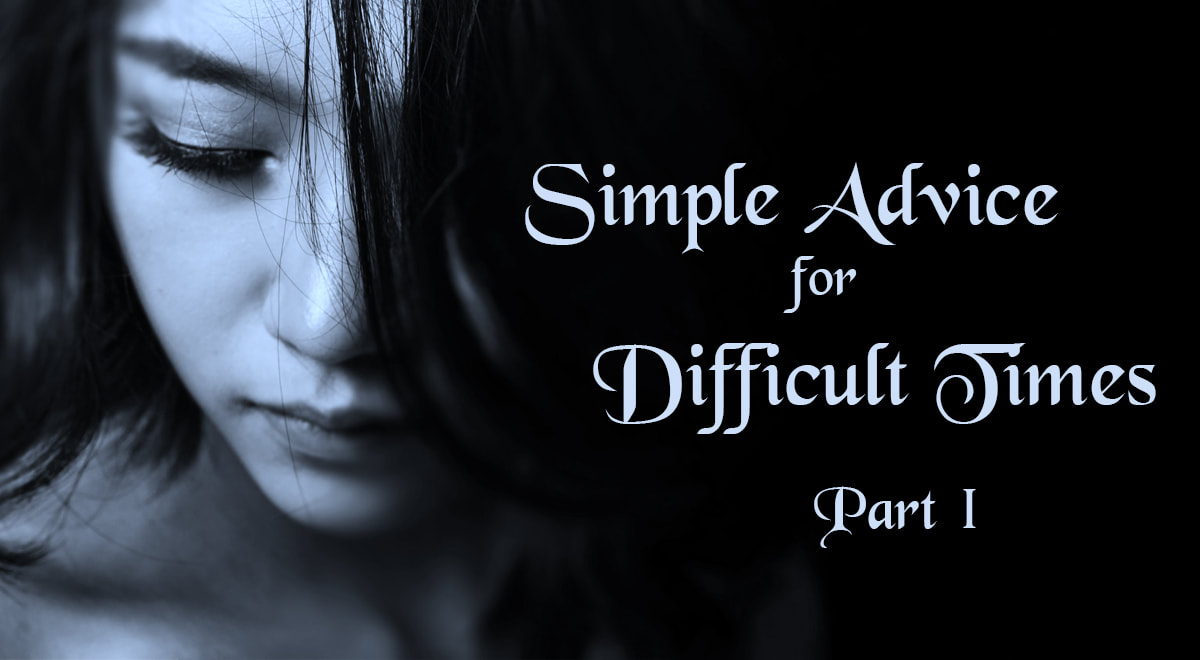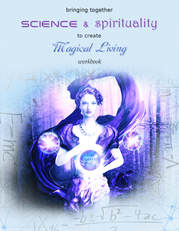|
Life is beautiful. Indeed it is. And yet at times, the challenges that are meant to help us grow and evolve become overwhelming and instead make us feel inadequate and powerless. The truth is that most of us haven't been taught how to deal with them effectively. Growing up we develop coping mechanisms to handle them, but as the nature of the difficulties we face changes, these coping mechanisms often stop working. Some only offer temporary relief, without providing solutions; and some can turn into addictions, and become distractive and dangerous. While there are many ways we can improve our experiences - from changing the situation to changing how we relate to it - and there are numerous techniques and approaches for both - it is beyond the scope of this article. My intent here is to share some simple practices that can help us navigate through difficult times with more ease while building resilience for the future.
Having struggled with severe anxiety, panic attacks and depression for many years, I tried many approaches to overcome these debilitating reactions my mind and body had to stress. It has been a long journey of self-discovery and healing. I learned a lot, had profound insights and developed skills that transformed my life. I went from struggling to make through the day, often resisting every minute of it to embracing every moment with love and appreciation. Here are a few of the things that made a huge difference for me and from my research and work with others also helped many to overcome similar challenges. Breathe . . . Just by changing our breathing, even for a few minutes, we can affect how we feel physically, mentally and emotionally. The depth of our inhalation determines the amount of oxygen that reaches our brain and can dramatically affect the way it functions. Our breathing rhythm also affects our heart rate, which constantly sends messages to our brain. Based on these messages either the sympathetic branch of our nervous system will become activated, preparing us for a flight of fight, or the parasympathetic – putting our body into a restoration and healing mode. Therefore, by changing our breathing, we can change how our mind and body function. Here is an easy breathing exercise for relaxation: - It's always good to keep the chest open, and the belly relaxed to accommodate deep breathing. - Start with exhaling all the air out, before attempting to take a deep breath in. When we are stressed, we often don't breathe out completely, which makes it impossible to inhale deeply. - As you exhale, relax the body as much as possible and continue relaxing throughout the exercise. - Breathe into your relaxed belly for 6 counts, hold it for 3 then exhale slowly for 8-10 counts. - You can choose to exhale through the mouth for a stronger effect. - Continue breathing and relaxing for 3-5 minutes or more. - When we are stressed, it will be almost impossible to quiet our mind, but do your best to keep your attention either on the flow of the air in and out or the increasing feeling of relaxation in the body. - If your awareness wanders, gently bring it back to your body and how different it feels with every round of breathing. - If you have a lot of tension in the body it might be difficult to relax, and you may even find it to be frustrating. But please continue consciously letting go of tension on the top and bottom of every breath, and soon you'll feel the relief. Be loving and gentle with your body. I would suggest to read the next two points and keep them in mind while doing this exercise. Stay present . . . When going through a difficult time and feeling overwhelmed, try to stay focused on the present moment as much as possible. Not just while meditating but throughout the day and night, until the stressful situation is resolved. What does it mean to be present? It simply means to observe what is happening at this moment without any mental commentary about what it means. Only the detached awareness of what is taking place. Keep the mind in the “now” as much as possible and only allow it to go into the past or the future when it's absolutely necessary as when you need to take care of an urgent matter or plan an action to change the situation, for example. Keeping our awareness in the present moment counteracts rumination, which according to neuroscience leads to anxiety and depression. Remember that there's hardly ever a time in our life when this moment is unacceptable, it is the interpretation that we give to what is happening and what it means that makes it into a problem. Which really means that problems only exist in our minds. In reality, there is a situation that needs a solution, or acceptance or both. Here is a good reminder that can be helpful - "Don't believe everything you think." Because a thought that we absolutely believe today might become completely meaningless tomorrow. Which brings us to our next point. . . This too shall pass . . . Remind yourself that nothing is permanent. Reality can appear as real and solid, but it's an illusion. Everything changes all the time - some things quickly, some things slowly. Sometimes it seems that there is no solution to the situation we are in, that everything is falling apart and life will never be good again. These are certainly the kind of thoughts that you don't want to believe. Even if you can't see any realistic solution to the situation at the moment, know that trauma, stress and mental exhaustion limit our cognitive function and prevent us from seeing all the possibilities. Just by practicing a breathing technique and relaxation our perspective regarding the problem can change dramatically. I would also recommend reading my earlier posts: The Power of Self-Compassion and Tapping into the Wisdom of our Heart. - In Part II we will discuss how practicing mindfulness meditation can help during difficult times by cultivating three powerful skills: concentration, sensory clarity, and equanimity. - We will learn how to use affirmations and affirmative prayer to change our subconscious beliefs that are the real cause of our suffering. - And also how to ask for help without feeling needy or incapable.
0 Comments
|
Diana Vehuni, Ph.D., is a certified spiritual and holistic life coach, mindfulness meditation teacher, and an artist. She brings together perennial mystical wisdom and cutting-edge scientific knowledge to facilitate profound transformation in her students and clients. Archives
December 2023
Categories |
|
|

 RSS Feed
RSS Feed
